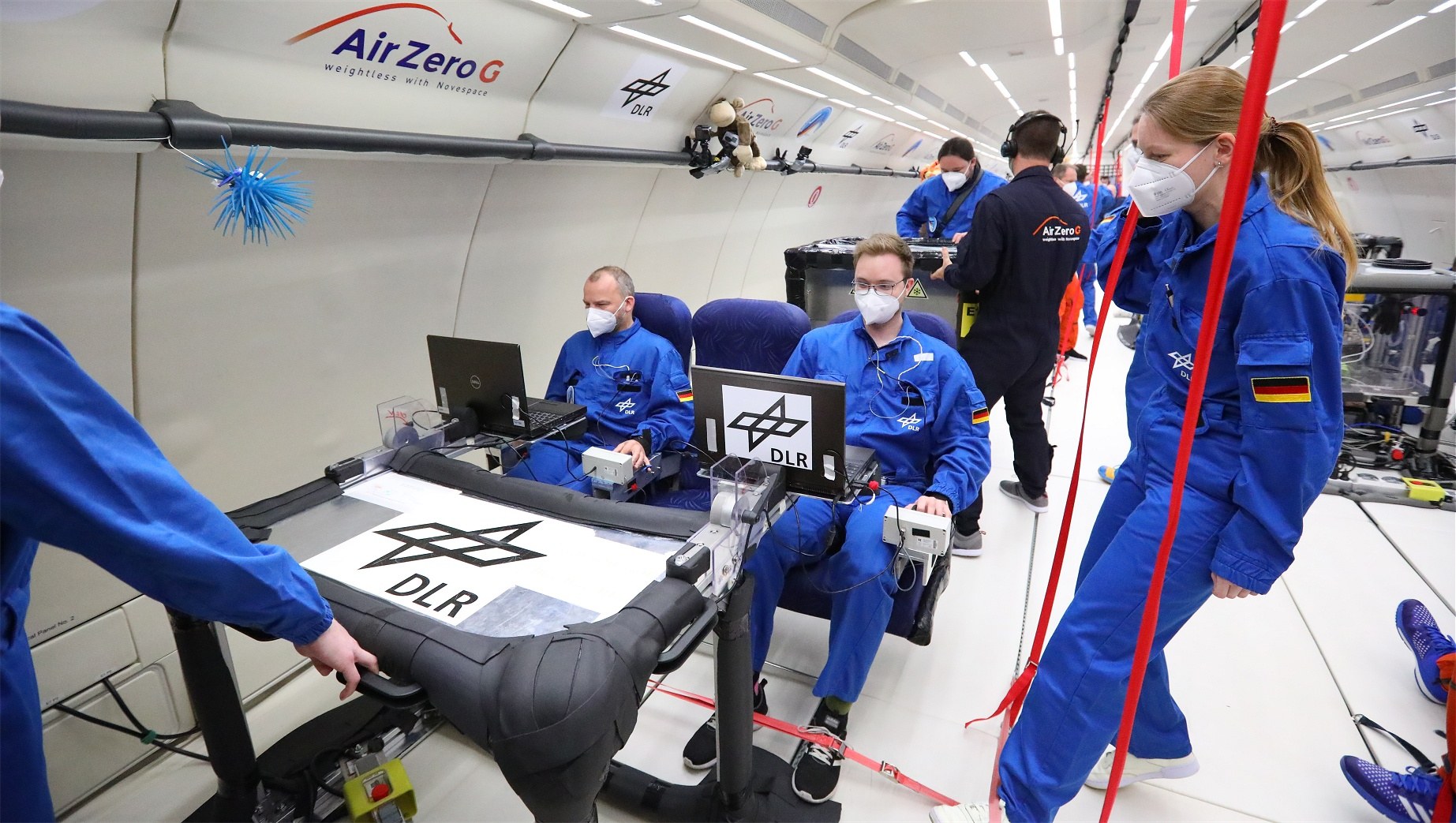Sleep and Human Factors Research

Our mission is to maintain optimal human performance, sleep, and wellbeing of operators working under the specific challenges and risks of the mobile 24-hour society.
Adverse environmental factors, unusual work hours (e.g. due to shift work, jetlag), and sleep loss are highly prevalent in operators in the field of aeronautics, space, and transport, affecting cognitive performance and wellbeing as well as long-term health. We use our highly advanced and controlled laboratory environment to uncover the mechanisms of action of these adverse factors, and develop countermeasures, that can then be examined in “real world” settings of flight crews and astronauts. We combine methods of polysomnography, quantitative EEG analysis, cognitive performance assessment, eye tracking, and neuromolecular imaging. In addition to studying the impact of environmental factors, our work focuses on the role of individual factors: We aim to understand why some individuals more than others are susceptible to cognitive performance impairment and adverse health effects in response to sleep loss and circadian misalignment.
Our society’s mobility demands are often in conflict with local residents’ need for undisturbed recreation and restful sleep. In order to ease this conflict, we investigate how sleep, cognitive performance, and annoyance are affected by air, rail, and road traffic noise, and develop protection concepts together with stakeholders. A rapidly emerging field of interest is the study of noise effects of novel aerial systems (e.g. urban air mobility) on humans.
Finally, we apply Digital health expertise to develop and validate biomedical devices for research and support of patients using remote applications.
Working Group
Performance and Sleep (PD Dr. med. Eva-Maria Elmenhorst)
- Effects of sleep loss, irregular timing of sleep, adverse work hours, and workload
- Effectiveness of flight time limitations
- Effect of environmental conditions (e.g. hypoxia)
- Neuromolecular mechanisms conveying individual (trait) vulnerabilities
- Development of individualized countermeasures
Teams
Noise Effects Research (Dr. rer. nat. Susanne Bartels)
- Effects of transport noise on sleep, performance, annoyance, and cardiometabolic health
- Exposure-response relationships and physiologically based noise protection concepts
- Investigation of vulnerable groups (e.g. children, older individuals)
- Noise effects of emerging and future air transport (urban air mobility, low-emission aircraft, low-sonic boom aircraft)
Digital Health (Dr. med. Markus Lindlar)
- Developing and evaluating biomedical systems and care concepts
